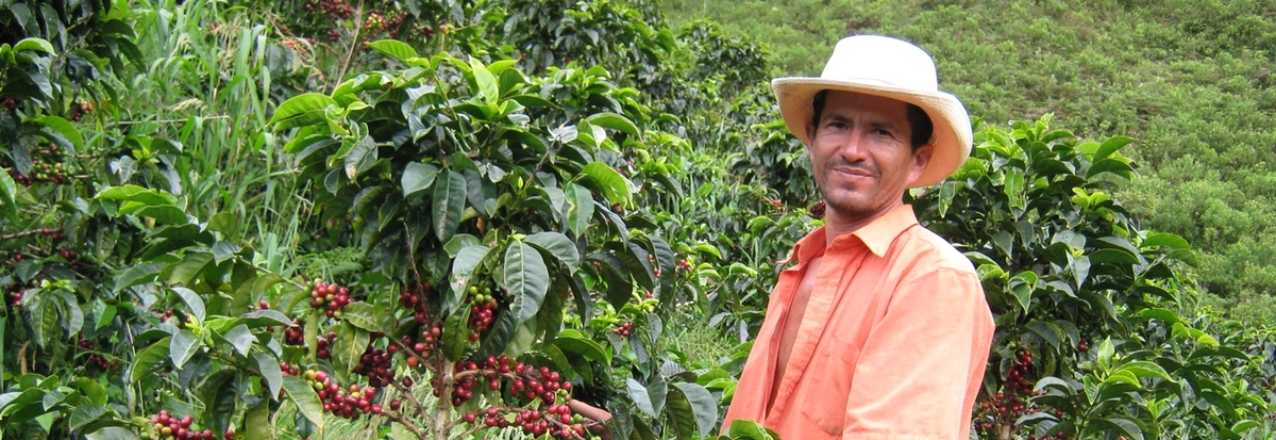The transition of regions submerged in conflict to stable and thriving democracies requires secure land tenure and socioeconomic opportunities for its citizens. USAID’s Land and Rural Development Program (LRDP) helps Colombia’s rural areas address land issues that unlock opportunities for improved livelihoods by strengthening land governance systems and public-private partnerships. With capacity building, USAID supports the government of Colombia (GOC) in addressing the following:
- Insufficient funding for rural development in conflict-affected regions that prevent land beneficiaries, families, and farmers from improving their livelihoods
- Land informality and insecure land tenure that inhibits investments, increases insecurity, and limits farmers from reaching their agricultural potential
- Significant challenges in restituting land to victims of conflict and securing adequate socioeconomic conditions
- Difficulty in accessing electronic land data, which hampers the effective implementation of land policies
Through an integrated approach, USAID focuses resources on strengthening institutions—the foundation of effective land governance and sustainable socioeconomic development—by streamlining policies and procedures that will improve land access and rural development opportunities for the poor.
Support to the Colombian Government
MOBILIZE PUBLIC AND PRIVATE SECTOR FUNDS FOR RURAL DEVELOPMENT TO HELP FARMERS AND RURAL FAMILIES
USAID works with mayors, governors, and national-level officials to strengthen their capacity to increase public and private spending in underserved regions. In doing so, it helps the government ensure that farmers have access to the resources they need—such as irrigation and technical assistance—to increase agricultural production and reduce poverty. Special attention is placed on the incorporation of land beneficiaries into income-generating initiatives. By 2019, USAID will establish 13 public-private partnerships that mobilize public and private sector funds and incorporate beneficiaries of land restitution and formalization into income-generating business models.
STRENGTHEN LAND RIGHTS AND SECURE LAND TENURE TO IMPROVE LIVELIHOODS
Approximately half of rural properties in Colombia are informal. Land informality inhibits citizens and public entities from accessing investments. In addition, citizens without land rights are often disincentivized from sustainably managing natural resources, which leads to environmental degradation and the improper use of land. By 2019, USAID will help the GOC pilot a massive land titling approach to reduce the average time and cost of securing land rights.
RESTITUTE LAND TO VICTIMS OF CONFLICT, LINKING THEM TO SOCIOECONOMIC OPPORTUNITIES THAT IMPROVE THEIR LIVELIHOODS
The Land Restitution Unit and other GOC agencies involved in restitution have encountered significant challenges in restituting land to claimants. In addition, there are 2,000 rural families occupying land that is being claimed by others in the land restitution process; many of these families are entwined in complex legal cases but cannot afford a lawyer. USAID helps the Land Restitution Unit address these challenges and incorporates restituted families into public-private partnerships that target strategic value chains for livelihood improvement. By 2019, USAID will help the GOC accelerate the processing of restitution cases and enable restituted families to secure socioeconomic opportunities. USAID will also support the Public Defender’s Office in providing legal representation to 800+ vulnerable families occupying land being claimed by others.
IMPROVE THE QUALITY AND ACCESSIBILITY OF INFORMATION TO EXPEDITE LAND POLICIES
Without access to high-quality, electronic land information, the implementation of Colombia’s land policies is slow, difficult, and costly. USAID is building the Land Node, an innovative platform that aggregates data from eight land agencies and makes it available in real time, thus increasing transaction efficiencies, reducing costs, and catalyzing a positive economic impact across the country. By 2019, USAID will improve access to land data, facilitating the assertive implementation of the GOC land agenda, and will digitize over four million land files from six departments to protect the integrity of land information and fill the information gaps that currently impede restitution and formalization efforts.
RECENT ACCOMPLISHMENTS
- Land Node included in the government of Colombia’s “Success Bank” in light of its contribution to amore efficient, productive, and transparent government that works in service of its citizens.
- Rollout of new municipal land offices in El Carmen de Bolívar (Bolívar) and Rioblanco (Tolima) that strengthen local governments’ ability to take the lead in land formalization efforts.
- Uptake by Colombia’s Rural Development Agency of LRDP’s methodology to link restitution beneficiaries to public-private partnerships, thus providing victims of the armed conflict with greater possibilities of sustainable and licit livelihoods upon returning to their lands.
- Tertiary road inventories covering 2,480 kilometers of road completed and delivered to nine municipalities in Southern Tolima, which will enable them to access critical funding sources.


